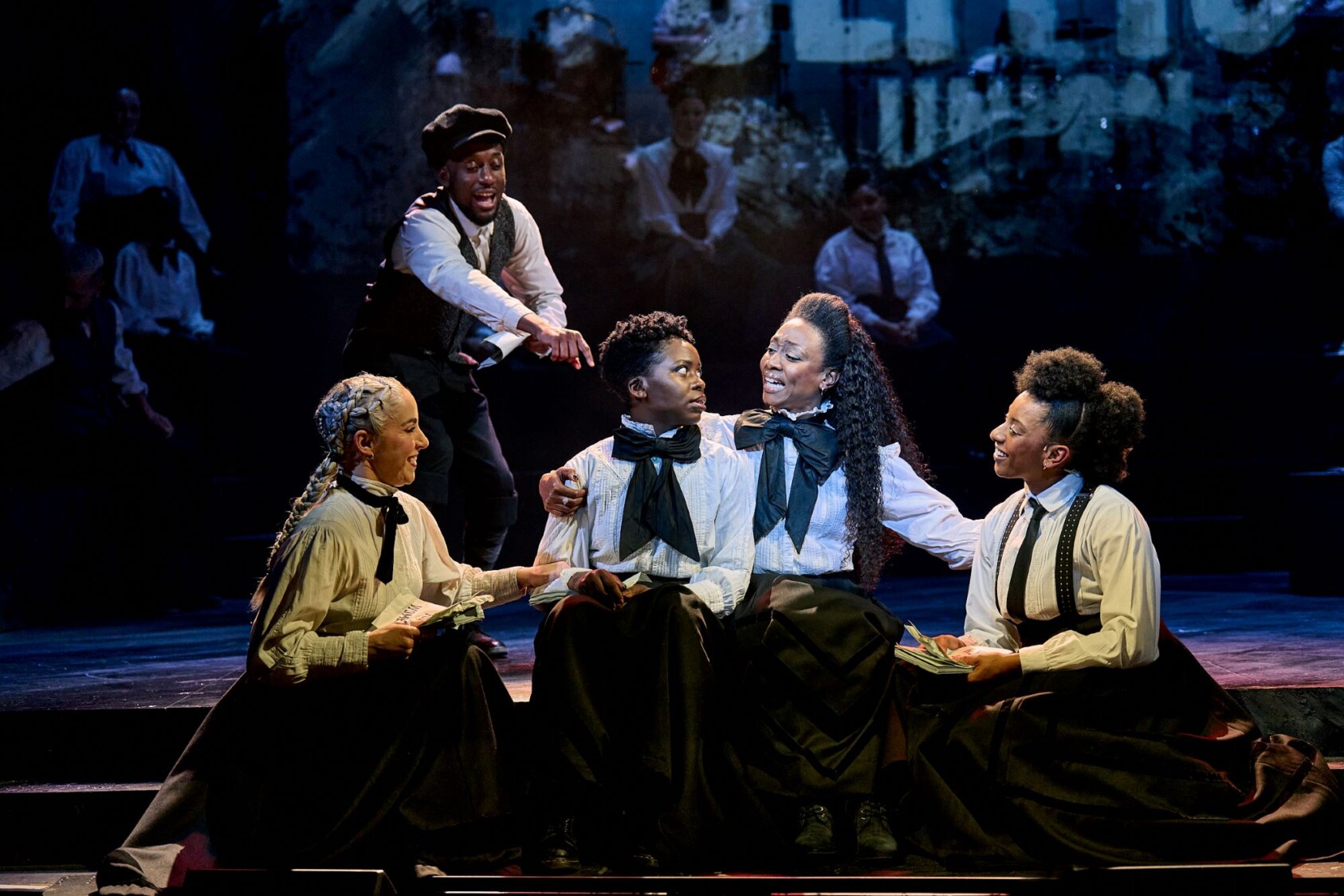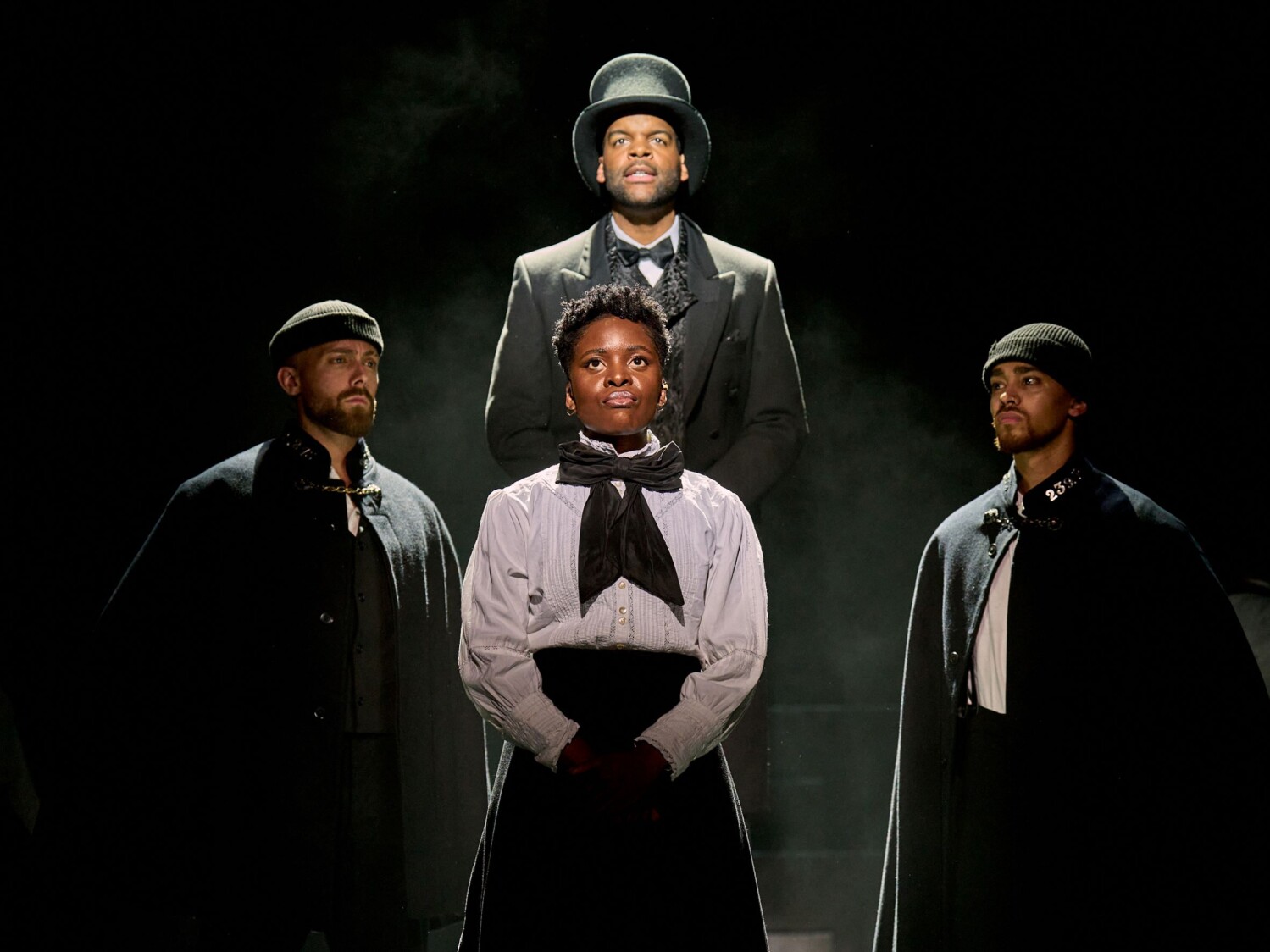Author Helen Pankhurst
Published 04/04/2023
The Old Vic’s Sylvia, an energetic, amusing, politically astute musical telling the story of the Pankhurst family’s leadership of the call for women to have the vote in the British Parliament, ends on April 8th. But the campaign for women to have their full place in Parliament continues.

Emmeline Pankhurst delivered the first votes for women in 1918. With her eldest daughter Christabel she went on to highlight women’s important role in the First World War effort. Emmeline was dedicated to promoting women’s equality in public life, becoming a Conservative party candidate in 1927.
For her younger daughter Sylvia the 1918 Representation of the People Act was not enough. It gave only women with property the vote. Sylvia continued to push for all women to have the right to vote and in 1928 this right was delivered. Sylvia went on to campaign for what was to become the NHS, gave invited talks across America, became a founding member of the anti-fascist Friends of Italian Freedom and an activist in decolonisation of Ethiopia where she was to receive a State funeral in 1960.

So what of the Pankhurst legacy in the UK today?
Nearly 100 years on, campaigning for fair representation continues. Knowing the UK population is 51% female yet only 31% of Parliamentarians are women, I founded the cross-party, coordinating campaign group Centenary Action (CA), a volunteer-run organisation dedicated to building a fully representative Parliamentary democracy.
The CA approach is intersectional, recognising that without specific attention Parliament could too easily reflect mainly white able-bodied men and women. I believe that all those living in our communities should see themselves represented in Parliament. Centenary Action is a cross party coalition of campaigns including Women Count +, focussed on gender equality, Disabled Women in Politics and Enact 106 targeting the inadequate numbers of Black, Asian and Minority Ethnic MPs. These campaigns are spreading awareness and understanding of the barriers which prevent all women being candidates and becoming successful Parliamentarians across all political parties. Removing barriers, opening pathways will lead to an inclusive system with rich diversity and dynamic debate relevant to everyone. Ultimately moving feminist thinking from the margins to the centre of political life.

University College London’s Constitution Unit has shown that broadening the profiles of those who represent us in Parliament or local Councils widens the scope of debate. Having a less adversarial Parliament, making social care a higher priority for example, is more likely when the voices of women are amplified. Women’s activism brings benefits for all.
I am incredibly proud when I hear from audiences inspired by my Grandmother and Great Grandmother’s stories thanks to this wonderful and energising musical, and we can all take that inspiration forwards in whatever way we choose – we can all be the change that we want to see.
If you want to know more visit the Centenary Action website or contact gibbons@careinternational.org who administers the group.